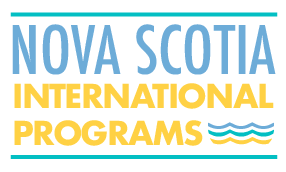COURSE DESCRIPTION AND OVERVIEW:
Biology 12 continues from Biology 11. The curriculum maintains focus on dynamic equilibrium as a theme. The units focus on the inner workings of the nervous and endocrine systems, reproduction and development, and genetics/evolution.
TEACHING AND ASSESSMENT PLAN:
Course Work:
Unit Topics What Students Will Learn Percent of Mark
1- Maintaining Dynamic Equilibrium II Systems regulating change in humans and other organisms:
Nervous system and endocrine system. • Neuron type and function
• Structure of the nervous system
• Homeostasis and the endocrine system
• Sense organs
• Maintaining homeostasis
• Carbohydrates, Lipids, Proteins, Enzymes 35%
2- Reproduction and Development Reproduction and Development • Cell division (mitosis and meiosis)
• Humans and other organisms
• Reproductive systems and control systems
• Ethical and societal issues about reproductive technology
• Embryonic development. 20%
3- Genetic Continuity Chromosomes, genes and DNA. • Molecular level of genetics.
• Inheritance
• Genetics and Society 30%
4- Evolution, Change and Diversity Evolution • Theory of evolution
• Speciation 15%
Students will complete an independent study project worth 10%. This project will be a presentation on the ethics of a biotechnology and its effects on society.
Each Unit is divided into 4 assessment types
Assessment Percent of each unit
Test 31 %
Quiz 23%
In class assignments 23%
Reports/ Reflections (Labs or in class activities) 23%
Term work in this course will be worth 65%. Independent project is 10%. April Midterm is 10% and June Final is 15%
INSTRUCTIONAL STRATEGIES:
Instructional strategies that will be used include: Direct instruction, labs, guided discovery, jigsaws, videos, problem solving, quizzes, tests, inquiry and projects.
ASSESSMENT ACTIVITIES:
Students will be assessed using a variety of methods in order to accommodate a variety of learning styles. Students will complete both individually-based as well as group in-class tasks such as brochures, posters, labs and assignments. Tests, quizzes, projects, oral participation and observations of and conversations with students will be assessed.
MATERIALS REQUIRED:
A list of required materials will be distributed to students in the first week of classes. Students will be required to bring their own calculators, binders, paper, rulers and pens/ pencils to each class. The textbook: McGraw Hill Ryerson Biology
EXTRA HELP:
Students are encouraged to seek extra help from their peers, Head Teachers and the course teacher. Students are welcome to drop by the teachers’ office or classroom if they have any questions or concerns. If there is a persistent issue that needs attention, a meeting can be held with the student, Head Teacher and course Teacher to determine a plan which will allow the student to best succeed.
CLASSROOM PROCEDURES AND EXPECTATIONS:
Students must be ready at the start of class, with their textbook, binder and writing instruments ready. Participation is mandatory, and all students will be expected to contribute to activities and discussions in class. A safe and respectful classroom environment is necessary for the learning of all students; therefore, students are asked to refrain from actions and words which are disrespectful to themselves, to their peers, their teachers, or intolerant of others in society.
Students will be responsible for all course work even if they happened to be absent on the day it is assigned. Longer absences must be discussed with the course teacher. All assignments will have a due date, but exceptional circumstances may interfere with a student’s ability to complete the work. This must be discussed with the course teacher before the due date.
MISSED WORK/ASSESSMENTS:
It is the responsibility of the student to obtain any missed work from the teacher or a fellow classmate. Assessments (tests, quizzes, labs, debates, presentations) must be made up the day a student returns to school. An extension may be provided upon request with a reasonable excuse.
LATE ASSIGNMENTS:
All out-of-class assignments have clearly defined due dates and should be handed in on that date. If a student does not pass in the assignment on time, the parent-guardian will be contacted and the student must complete the assignment as soon as possible.
ACADEMIC INTEGRITY:
Every student in our program will be taught what academic honesty and dishonesty are. From that point on, the student is responsible to practice academic honesty. Any assignment in which a student has been academically dishonest will be treated as if it were a late assignment: parent-guardian will be contacted, and the student will have to do the assignment again in a supervised situation. Should there be more occurrences of academic dishonesty in the course; that assignments/assessment will receive grades of zero.
PARENT-STUDENT-TEACHER CONTACT:
Scheduled parent-teacher interview will be held in April, after midterm examinations. Throughout the year parents or guardians are welcome to schedule an appointment (with translation) to discuss their child’s progress by contacting the head teacher. Students may talk to the course teacher before/after class, after school, or by appointment. Students may also contact the course teacher by email. Your email will be replied to in a reasonable time period, but please do not expect an immediate response.
- Non-editing teacher: Daniel Fergusson
